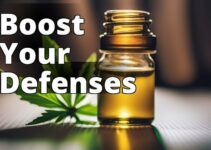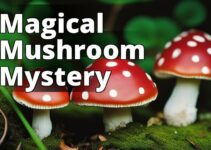Are you curious about the difference between DELTA 9 THC and Delta 11 THC? Well, get ready for a mind-blowing journey into the world of cannabis compounds! 🌿💥
Picture this: you're about to embark on a thrilling adventure where two powerful cannabinoids go head to head—DELTA 9 THC and Delta 11 THC. But what exactly sets them apart? 🧐 Let's dive in and uncover the secrets behind these two fascinating compounds!
Hold on tight, because this exploration will take you on a rollercoaster ride through their effects, origins, and unique properties. Buckle up and join the quest to unravel the mystery of DELTA 9 THC and Delta 11 THC! 🚀✨
Dive into the world of THC with a comparison between DELTA 9 THC and Delta 11 THC. These two compounds have different effects and properties. Let's explore five key features to understand their distinctions:
| DELTA 9 THC | Delta 11 THC |
| Psychoactive effects | Effects on mood |
| Medical applications | Therapeutic benefits |
| Legal status | Regulatory considerations |
| Chemical structure | Molecular arrangement |
| Availability | Market presence |
Key Takeaways: DELTA 9 THC vs Delta 11 THC
- Delta 9 THC and Delta 11 THC are two different forms of THC found in cannabis plants.
- Delta 9 THC is the most common and well-known form of THC, responsible for the psychoactive effects of cannabis.
- Delta 11 THC is a lesser-known form that has different effects and properties compared to Delta 9 THC.
- The potency and psychoactive effects of Delta 9 THC are typically stronger than those of Delta 11 THC.
- Research is ongoing to understand the potential benefits and risks associated with Delta 11 THC.
Comparing DELTA 9 THC vs Delta 11 THC
As the cannabis industry continues to evolve, new compounds and variants are being introduced to the market. DELTA 9 THC and Delta 11 THC are two such compounds that have gained popularity among cannabis enthusiasts. While both are forms of tetrahydrocannabinol, they have distinct characteristics and effects. In this article, we will delve into the differences between DELTA 9 THC and Delta 11 THC, exploring their key features, user experiences, pros and cons, price points, and ultimately determining which is the better choice.
Overview of DELTA 9 THC
DELTA 9 THC, also known as delta-9-tetrahydrocannabinol, is the most well-known and widely studied psychoactive compound found in cannabis. It is responsible for the euphoric and intoxicating effects commonly associated with marijuana use. DELTA 9 THC interacts with the body's endocannabinoid system, binding to cannabinoid receptors in the brain and central nervous system. It is known for its ability to induce relaxation, relieve stress, and stimulate appetite.
In addition to its psychoactive effects, DELTA 9 THC has also shown potential therapeutic benefits. It has been used to alleviate pain, reduce nausea and vomiting, and stimulate creativity. However, it is important to note that the legal status of DELTA 9 THC varies depending on the jurisdiction. In some places, it is classified as a controlled substance and is only available for medical use.
Overview of Delta 11 THC
Delta 11 THC is a lesser-known variant of tetrahydrocannabinol that is gaining attention in the cannabis community. It is structurally similar to DELTA 9 THC but differs in the placement of a double bond in its molecular structure. This slight difference is believed to result in differences in the physiological and psychological effects of the compound.
Delta 11 THC is reported to have a more uplifting and energetic effect compared to DELTA 9 THC. Users have described it as providing a clear-headed high with enhanced focus and creativity. It is also said to have fewer sedative effects, making it a popular choice for daytime use. However, the research on Delta 11 THC is limited, and more studies are needed to fully understand its properties and potential benefits.
Key Features Compared
Now let's delve into the key features of DELTA 9 THC and Delta 11 THC and compare them to better understand their differences.
Psychoactive Effects:
DELTA 9 THC is widely recognized for its psychoactive effects, providing a euphoric and intoxicating high. It can induce feelings of relaxation, happiness, and creativity. On the other hand, Delta 11 THC is reported to provide a more uplifting and energetic high, enhancing focus and creativity. It is often described as a clearer and more functional high compared to DELTA 9 THC.
Therapeutic Benefits:
Both DELTA 9 THC and Delta 11 THC have shown potential therapeutic benefits. DELTA 9 THC is commonly used to alleviate pain, reduce nausea and vomiting, and stimulate appetite. Delta 11 THC, although less researched, is believed to have similar therapeutic properties. However, more studies are needed to determine its specific benefits and applications.
Legality:
The legal status of DELTA 9 THC and Delta 11 THC varies depending on the jurisdiction. DELTA 9 THC is classified as a controlled substance in many places and is only available for medical use or in states where recreational cannabis is legalized. Delta 11 THC, being a lesser-known compound, is not specifically regulated in most jurisdictions. However, it is always essential to check local regulations before using any cannabis-derived products.
User Experience
The user experience is a crucial aspect when comparing DELTA 9 THC and Delta 11 THC. While both compounds offer unique effects, they may suit different preferences and situations. DELTA 9 THC is known for its classic marijuana high, providing relaxation, euphoria, and potentially sedative effects. It is commonly used in the evening or at times when relaxation and stress relief are desired.
Delta 11 THC, on the other hand, offers a different experience. With its uplifting and energizing effects, it is often favored for daytime use or creative activities. Users report increased focus, motivation, and productivity when using Delta 11 THC. It is important to note that individual experiences may vary, and the effects can be influenced by factors such as dosage, tolerance, and individual body chemistry.
Ultimately, the user experience is subjective, and personal preferences play a significant role in determining which compound is better suited for an individual's needs and desired effects.
Pros and Cons
DELTA 9 THC:
Pros:
- Well-studied and understood compound
- Provides a classic marijuana high
- Offers potential therapeutic benefits
Cons:
- Potential for intoxication and impairment
- Various legal restrictions and regulations
- Possible side effects such as anxiety and paranoia
Delta 11 THC:
Pros:
- Uplifting and energizing effects
- Enhanced focus and creativity
- Less sedative compared to DELTA 9 THC
Cons:
- Limited research and understanding
- Legal status may vary in different jurisdictions
- Individual experiences may vary
Price Comparison
The price of DELTA 9 THC and Delta 11 THC products can vary depending on various factors such as the product's form, quality, and market demand. Generally, products containing DELTA 9 THC are more widely available and have a more established market, which can result in a wider range of options and price points. Delta 11 THC, being a lesser-known compound, may have a more limited selection and potentially higher prices due to its novelty and potential scarcity.
It is important to note that prices can fluctuate and vary across different regions, dispensaries, and online retailers, so it is always recommended to compare prices and do thorough research before making a purchase.
Comparison Table
| Feature | DELTA 9 THC | Delta 11 THC |
|---|---|---|
| Psychoactive Effects | Euphoric and intoxicating high | Uplifting and energizing high |
| Therapeutic Benefits | Pain relief, nausea reduction, appetite stimulation | Potential therapeutic benefits, further research needed |
| Legality | Controlled substance, limited availability | Not specifically regulated in most jurisdictions |
Which is Better – DELTA 9 THC vs Delta 11 THC
Deciding which is better between DELTA 9 THC and Delta 11 THC ultimately comes down to personal preferences and desired effects. Both compounds offer unique experiences and potential benefits, but they cater to different situations and preferences.
For those seeking a classic marijuana high with relaxation, euphoria, and the potential for therapeutic benefits, DELTA 9 THC may be the preferred choice. It offers a well-studied compound with established effects and a wide range of available products.
On the other hand, individuals looking for an uplifting, clear-headed high with enhanced creativity and productivity may find Delta 11 THC more suitable. Although research on Delta 11 THC is limited, user reports highlight its energetic effects and potential benefits.
In conclusion, the decision between DELTA 9 THC and Delta 11 THC depends on personal preferences and desired effects. It is recommended to start with lower doses and consult a healthcare professional or knowledgeable cannabis specialist to determine which compound and product is best suited to individual needs and goals.
3 Reasons to Choose DELTA 9 THC:
- Well-established compound with extensive research and understanding
- Provides a classic marijuana high, ideal for relaxation and stress relief
- Offers a wider range of product options and availability
Frequently Asked Questions
Are you curious about the differences between Delta 9 THC and Delta 11 THC? Look no further! Here are five common questions and answers to help you understand the distinctions between these two forms of THC.
1. How does Delta 9 THC differ from Delta 11 THC?
Delta 9 THC and Delta 11 THC are two different isomers of tetrahydrocannabinol (THC), the main psychoactive compound found in cannabis. The primary difference between them lies in their molecular structures. Both forms have a double bond within their carbon chains, but the placement of this bond distinguishes them. Delta 9 THC has the double bond on the ninth carbon atom in its chain, while Delta 11 THC has it on the eleventh carbon. This seemingly small difference affects their chemical properties and how they interact with the body.
When consumed, Delta 9 THC is well-known for its psychoactive effects that produce the feeling of being high. On the other hand, Delta 11 THC is believed to have a milder psychoactive profile and may offer a more relaxed and calming experience without the intense euphoria associated with Delta 9 THC. While both compounds bind to the same receptors in the body, the difference in their structures may influence the specific effects they produce.
2. Are there any legal differences between Delta 9 THC and Delta 11 THC?
Legal regulations surrounding Delta 9 THC and Delta 11 THC can vary depending on the jurisdiction. Delta 9 THC is the primary form of THC that is regulated and restricted due to its psychoactive properties. In many places, cannabis products containing Delta 9 THC are only legal for medical or recreational use under specific conditions and regulations.
In contrast, Delta 11 THC is less commonly regulated and may exist in legal grey areas. As it is a less researched and less well-known isomer, it may not be specifically addressed in existing laws. However, it's important to note that the legal landscape is constantly evolving. It is always essential to stay informed about the specific laws and regulations in your jurisdiction to ensure compliance.
3. Can Delta 9 THC and Delta 11 THC be found together in cannabis products?
Yes, it is possible to find both Delta 9 THC and Delta 11 THC in cannabis products, although their concentrations may vary. Delta 9 THC is usually more abundant in cannabis plants, making it the more well-known and widely studied form of THC. As for Delta 11 THC, it is generally found in smaller quantities and may not be as well-researched as Delta 9 THC.
Depending on the type of cannabis strain and the methods used for extraction or production, the ratio of Delta 9 THC to Delta 11 THC can differ. Certain strains may have higher levels of Delta 11 THC, while others may have very little or none at all. If you are interested in trying a specific cannabinoid profile, it is recommended to check lab test results or seek guidance from a reputable source to ensure you are getting the desired compounds.
4. Do Delta 9 THC and Delta 11 THC have the same potential health benefits?
While both Delta 9 THC and Delta 11 THC belong to the same family of compounds and share some similarities, their potential health benefits may differ. Delta 9 THC has been studied extensively and is known for its therapeutic properties, such as pain relief, nausea reduction, and appetite stimulation. It is commonly used in medical cannabis treatments.
On the other hand, Delta 11 THC's potential health benefits are less well-known due to limited research. However, it is believed to have similar therapeutic effects, albeit potentially milder. More research is needed to fully understand the distinct health benefits and characteristics of Delta 11 THC.
5. Can Delta 9 THC and Delta 11 THC be detected in drug tests?
Conventional drug tests typically focus on detecting Delta 9 THC, as it is the most well-known and widely found form of THC in cannabis products. Delta 11 THC is not typically targeted in standard drug tests, mainly due to its lower prevalence and limited research. However, it's worth noting that some specialized tests may be able to detect and differentiate between different forms of THC.
If you are concerned about a drug test, it is essential to be aware of the specific substances being tested for and consult with a medical professional or testing facility to better understand the capabilities of the test being conducted. Transparency and open communication are crucial when navigating drug testing scenarios.
DELTA 9 vs. 11-HYDROXY-THC | Cascadia Herbals Breaks it Down | by Cannabis Frontier
Summary
So, to summarize what we've talked about in this article about DELTA 9 THC and Delta 11 THC:
The first thing to know is that both DELTA 9 THC and Delta 11 THC are types of compounds found in cannabis plants, but they have some differences. DELTA 9 THC is the one that most people are familiar with and it's the one that can make you feel high. On the other hand, Delta 11 THC is a lesser-known compound that is milder and may not have the same intense effects as DELTA 9 THC.
We also learned that DELTA 9 THC is illegal in many places because of its psychoactive effects. But Delta 11 THC, being less potent, may have some potential benefits, like helping with pain and inflammation.
Now, it's important to mention that more research is needed to fully understand the effects and potential benefits of Delta 11 THC. And remember, if you ever decide to try any form of THC or cannabis, always talk to a trusted adult or medical professional to make sure you stay safe and make informed decisions.
In the end, our goal here was to give you some basic knowledge about these compounds so you can be better informed. So, stay curious, keep asking questions, and always seek reliable sources for information.





